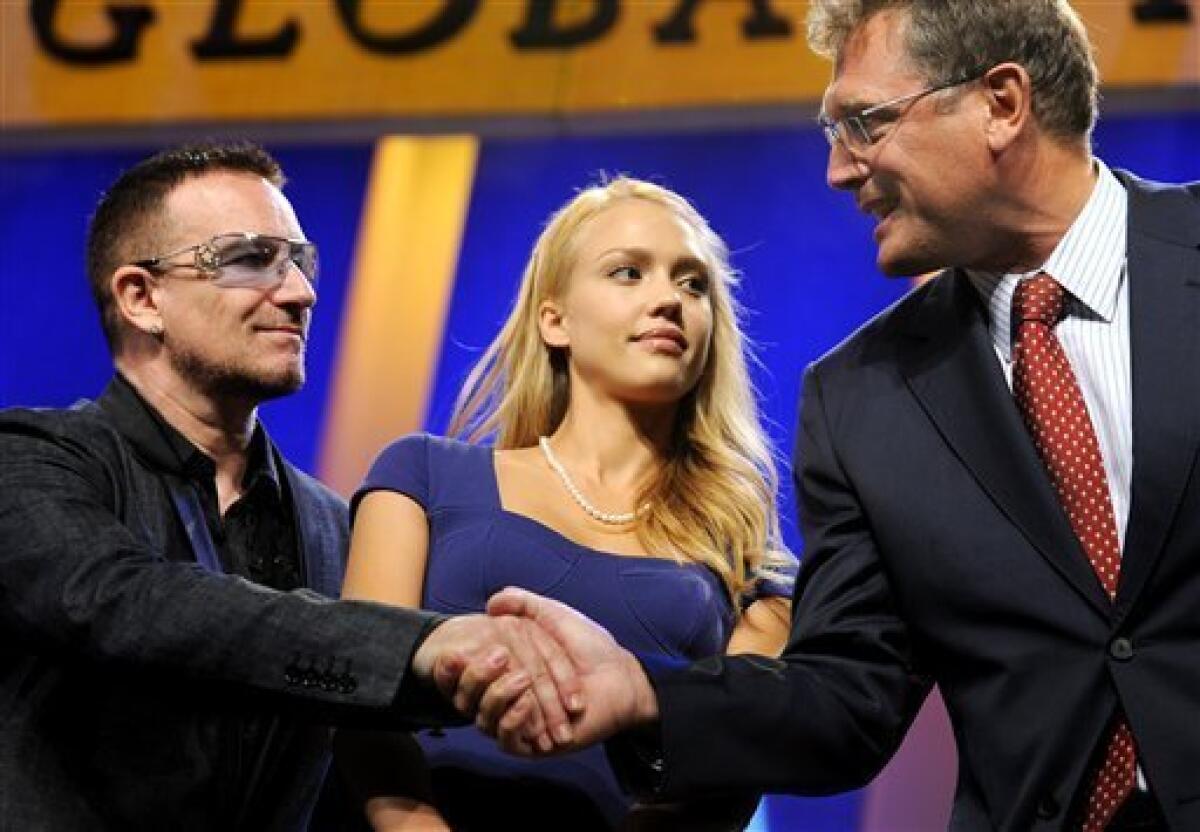AP Interview: Valcke says US stadiums have time

New stadiums could be considered as late as 2017 for a possible World Cup in the United States in 2022, according to soccer’s No. 2 official.
U.S bidders narrowed their list to 32 stadiums last month as they prepared to submit their plan to FIFA next May ahead of the December 2010 vote on hosts for the tournament in 2018 and 2022. FIFA asked that 12-18 stadiums of 40,000 capacity or higher be submitted with each bid.
FIFA secretary general Jerome Valcke said Thursday in an interview with The Associated Press that would not preclude new venues from being added. Possible new stadiums have been discussed for the NFL in the Los Angeles area, San Jose, Calif., and Minneapolis.
“They have a lot of time to decide and to work with the different cities,” said Valcke, adding the earlier he could see decisions on sites would be 2015.
Australia, England, Indonesia, Japan, Mexico, Netherlands-Belgium, Russia, Spain-Portugal have also bid to host both World Cups, and Qatar and South Korea bid for 2022 only. England and Spain are seen as the leading contenders to host in 2018, while the United States is viewed as a top candidate for 2022.
European bidders face stadium issues, according to Valcke.
“None of them has what we could call a World Cup stadium, except at maybe Wembley,” he said, referring to the English national team’s home field in London. “Most of the stadiums. they will have to improve.”
Even grounds such as Barcelona’s Camp Nou would have to be modified.
“It’s a beautiful stadium, but how do you put a number of TV trucks around? How do you put a hospitality village for 10,000 people,” he said. “You will definitely need to find space around the stadium, and that’s the main problem we have.”
In other news, Valcke repeated the call from FIFA president Sepp Blatter for Major League Soccer to switch to the September to June schedule used by most European Leagues and drop its current March to November format. He also said the $100 million FIFA is spending on development money in Africa from 2007-10 could be matched with a similar amount in South America ahead of the 2014 World Cup in Brazil.
He also said it likely will take a long time for FIFA to complete 15 investigations into whether clubs broke rules in transfer agreements. FIFA this month banned Chelsea from signing players until January 2011 in ruling the team broke rules when it brought French 18-year-old Gael Kakuta from Lens in 2007.
“The day after we received a number of letters and calls,” he said. “For the time being, we have following some requests from different clubs, etc., we have 15 investigations in England. We know already that these investigations, they are not at the same level as the Chelsea one. ... Everyone is coming with lawyers, and then it takes years, at least months, to finalize cases.”
Valcke said FIFA is establishing a special working unit with the Union of European Football Associations, where he said 80 percent of the cases originate. He also said a FIFA subcommittee will examine and approve each future international transfer of players under 18, of which there are about 500,000 annually. Players under that age are allowed to transfer only if they are from Europe, where the threshold is 16; they are moving with at least one family member for primarily a non-soccer reason; or they are moving to another country less than 50 kilometers (30 miles) away.
“There is a misuse of the exceptions,” he said.
Looking ahead to next year’s World Cup in South Africa, Valcke said the primary issues to address are completion of the stadiums, transportation and training workers such as drivers and stewards. He has been spending one week a month in South Africa, and FIFA’s staff will start arriving for the tournament in early May.
“You have to change the culture,” he said. “There is a tradition in South Africa that you are just coming into the stadium with your ticket and you sit on the first available seat. We have to make sure that stewards are trained to deal with such a situation.”
He is looking forward to the time after the World Cup final on July 11 and plans to be with Danny Jordaan, head of the South African organizers.
“I say, ‘Danny, we have to make sure that we drink a bottle of champagne, the two of us,’” Valcke said. “‘Even if you have never had a drop of alcohol, you will be drunk, but we have to do it.’”